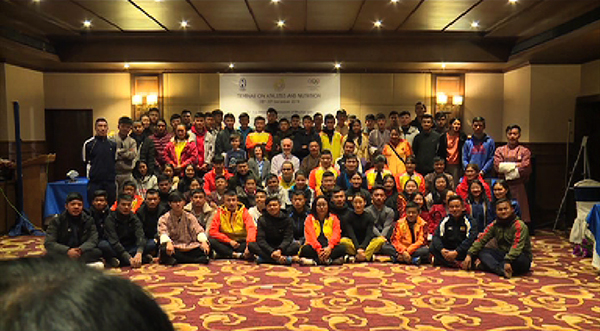 Following the daily nutritional guideline is a challenge. And Bhutan is no exception. In fact, Bhutan does not even have a proper and adequate nutrition pattern and directives for its athletes.
Following the daily nutritional guideline is a challenge. And Bhutan is no exception. In fact, Bhutan does not even have a proper and adequate nutrition pattern and directives for its athletes.
Scientific research has proven that nutritional strategies enhance exercise and training adaptations leading to improved health and performance. But as much as it is important, it is given the least importance.
In the recent South Asian Games, the Bhutan Olympic Committee (BOC) gave Nu 7,500 as diet allowances for each athlete five months prior to the games. Among the 15 federations, it is only boxing that provides diet allowances to its athletes per month.
“It makes no sense to train hard without also taking nutrition very seriously. They may not be able to train harder than athletes in other countries. But if they are serious about nutrition, they can gain an advantage when they go to international competition. So what we try to do in these three days is convince them that nutrition is important and try to help them to find sources of information that will help them in their performance,” said Ron Maughan (PhD), a Professor for Sports Nutrition at the University of St Andrews in Scotland.
Identifying key nutrition issues for athletes and current eating and drinking pattern of athletes were discussed. And most athletes like any other non-athletes said they consumed regular food like rice.
“In the field, we are guided by the coach. The coach just train us but they don’t teach us what food and what nutrients we should take. And as for the BOC, they support us with diet allowances when we have an international competition,” said Kinley Tenzin, an Athlete.
“Federation focus more on training. This is the first time we have attended such seminar. We are given diet allowance only when there is a competition. And then later it’s us who have to do everything. There is no proper directives as to what to eat and what not to,” added Goma Pradhan, also an Athlete.
Sports in Bhutan is also challenged with lack of professional nutritionists.
“The athletes, they themselves, were very adamant and they said they wanted a seminar on nutrition because they also felt their performance and how well they performed all depended on this. I think it is also the right time that BOC and also federations, if they feel like this is very important, to recruit if not train a sports nutritionists,” said Sonam Thinley, the Chairperson for Athlete Commission of Bhutan.
Over 70 athletes attended the three days seminar.
Samten Dolkar.









